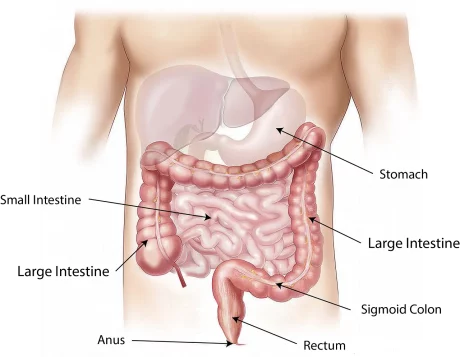Long before the advent of probiotic supplements, humans included fermented foods in the diet. In fact the earliest evidence we have, suggests we have consumed them as far back as 7000 BC1. Historically food was fermented as a method of preservation to extend its usable-life through seasons of shortage, but now we understand much more about the health-supporting benefits that fermented foods have.

So what actually are fermented foods?
The Heart Foundation of New Zealand2 describes fermented foods as having undergone a controlled process to increase the growth of beneficial microbes. During this process microbes (which includes beneficial bacteria, moulds and yeasts) breakdown certain nutrients found in the food (e.g. sugars) to form a variety of compounds such as organic acids (e.g. lactic acid and acetic acid), gases (e.g. carbon dioxide) or alcohol 1. It is this process that gives fermented foods their unique qualities, and characteristic taste and aroma.
The process of fermentation:
- Extends the shelf-life of the food1,9
- Inhibits the growth of pathogenic (bad) microbes1,9
- Improves the nutritional content of the food 1,7,8,9
Fermented foods include:
- Dairy products, including cheese and yoghurt 1,2,9
- Alcoholic beverages such as wine, beer, sake and cider 1,2,9
- Non-alcoholic beverages including fruit vinegars (e.g. apple cider vinegar), kombucha, jun (kombucha made with honey instead of sugar), water kefir and milk kefir 1,4,5,6,9
- Soy-based products such as tempeh, miso and natto 1,2,3
- Vegetable-based products such as kimchi and sauerkraut 1,2,9
- Fermented meat and fish products 1,2,9

Are they always probiotic?
Probiotics are live microorganisms present in food that, when consumed in sufficient quantities, provide health benefits to their consumers 23.
The number and strains of organisms in fermented foods can vary, depending on how the products are manufactured, processed and stored 16, 17. So whilst the microbiota in the fermented food might not strictly meet the definition of the term ‘probiotic’ (because the microbiota have not been tested and identified), this does not mean that they are not beneficial strains with probiotic properties 14,16,23.

So what’s all the fuss about?
There has been much debate about what effect the microbiota from fermented foods has on our own gut microbiome. Recent research finds that at least some (especially some of the Lactobacillus strains) can modulate our gut microbiome 18. There are several mechanisms proposed to be involved in this process including:
- By ‘feeding’ our resident microbiome with metabolites produced by the fermented food microbiota (e.g. acetate, lactate, and propionate)
- Changing the gut pH (acid-balance) or by releasing ‘bacteriocins’ which favours some of the strains in our microbiome over others
- Indirectly, where the fermented food microbiota initiates a response by the gut epithelium (lining) upon its own microbiome

But wait there’s more
Did you know that fermentation can improve the nutritional content of food above and beyond that of its raw ingredients? Research by Xiang et al (2019) found that depending upon the particular fermented food consumed, the bioavailability of B vitamins such as biotin, folate, riboflavin, pantothenic acid, pyridoxine, pyridoxal and thiamine was improved 15.
These are just some examples of some of the microbial strains found in different types of fermented foods and their benefits:
- Lactobacillus delbrueckii subsp. bulgaricus, L. lactis and Streptococcus thermophilus produce B vitamins such as B9 (folate)1,12
- Several strains of Lactobacilli release bioactive compounds called peptides, which can confer health benefits such as supporting cardiovascular, mood, antioxidant potential, bone health and more 1,7,8,12,13
- Streptococcus thermophilus reduces the content of lactose and galactose in food 1,12
- Lactobacillus plantarum and L. acidophilus reduce the phytic acid (anti-nutrient) content of food, thus increasing mineral availability in the food 1
The health benefits of Fermented Foods
We often think of fermented foods as just being good for gut health but research shows they can support the health of those with long term chronic conditions such as:
- High blood pressure 10,11,14
- Cardiovascular disease 10,11
- Osteoporosis 10
- Type 2 diabetes 10,11,12,14
- Muscle soreness 10
- High cholesterol levels 10,11
- Obesity 10,14
Fermented food supports good immune health
Recent research from Marco et al (2017) suggests that by consuming fermented foods we bring transient microbes into contact with our residential intestinal microbiome 10. This may stimulate our immune system and thereby assist in the process of the normal development of a healthy immune system.
Interested in homemade ferments?
If you’re interested in trying out some homemade fermented foods for yourself, you could join a group such as ‘Fermenting Freaks Forever NZ’ on Facebook (see below for link) or have a go at the Heart Foundation’s recipes for Kimchi and Pickled Vegetables.
Remember to start with small doses.
- https://www.facebook.com/groups/fermentingfreaksforevernz
- https://www.heartfoundation.org.nz/wellbeing/healthy-recipes/kimchi-fermented-cabbage
- https://www.heartfoundation.org.nz/wellbeing/healthy-recipes/pickled-vegetables

Are fermented foods NOT your friend?
- Do fermented foods cause you digestive symptoms?
- Think you can’t ‘stomach’ them, despite how ‘good’ you know they are for you?
- Do fermented foods cause other symptoms (such as headaches, flushing, irritability)?
There are a number of reasons a person might not do well on fermented foods. Here are just a few:
Histamine sensitivity
Histamines can be found in many common foods, especially those that have been aged or fermented. Symptoms aren’t necessarily just gut-related (e.g. nausea, bloating, diarrhoea); they can include hives, flushing, nasal congestion and headaches 13, 20, 21. If you think histamines might be problematic for you read more here. 13, 19
FODMAPs
Some fermented foods contain ingredients that are high in FODMAPs, such as kimchi and sauerkraut which both contain fermented cabbage, or Beet Kvass, which is made from beetroot. FODMAPs stands for Fermentable Oligosaccharides Disaccharides Monosaccharides and Polyols. These are types of carbohydrates that some individuals have trouble digesting 22 and can indicate a bigger issue with the ecology of the gut.
Humans are supposed to be able to process these foods and they form part of a normal healthy diet. If you are controlling gut symptoms by avoiding these foods (or others), or think you have specific food intolerances, an appointment is recommended!
Food Hygiene
If a fermented food has been made under inadequate hygiene standards or has been improperly stored, it is likely to become contaminated and spoil and cause a problem for all who consume them 14.
However there are some people for whom fermented food can be problematic even when the fermented food is properly prepared and stored.
If you find fermented foods troublesome why don’t you make an appointment to discuss the matter with us!














